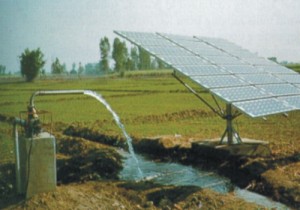
Jan 6, Islamabad: Pakistan is fulfilling more than 80% of its resources through imports although there are a variety of minerals, metals, coal mines.
Thar coal desert is the world’s third largest coal reserve. Energy crisis in Pakistan is increasing and with the passage of time it will worsen, as its requirements increase. With the decrease in energy production and its unavailability, the industries will have to face difficulty in future; therefore, it is important that the energy demands should be met to decrease power shortages and to save industries from facing any crisis.
The current power supply in Pakistan is around 1400 MW whereas the demand will increase by 100,000 MW by 2030. Considering this increase of power demand in 15-25 years, it is important that such policies should be made which not only take care of the current power demand, but also consider future power demand.
Pakistan is a self-sufficient country in minerals and coal reserves. The distribution of coal reserves in different provinces is as following.
Sindh has about 186.560 billion tonnes of coal reserves, Punjab 235 million tonnes, Balochistan 217 million tonnes, KP 90 million tonnes and Azad Kashmir 9 million tonnes of coal reserves. The total coal reserve in Thar is equal to 50 billion tonnes of oil reserve which is more than Iran and Saudi Arabia combined oil reserves or over 200 TCF of gas which is 42 times greater than total gas reserves discovered in Pakistan so far.
Considering the future energy demands, it is important that Pakistan should move towards coal reserves for electricity production as already many countries are doing so. Iran and china are producing electricity from coal. China is producing 75% electricity with coal. Poland and Germany produce around 80% of electricity from coal. South Africa 93%, India 78.3%, Australia 77%, America 49%, Denmark 47.3% and UK 32.9% produce energy from coal. Whereas Pakistan only produces 7% of total energy production while the energy production should be up to 25%.
The energy crisis in Pakistan is increasing day by day due to political hindrances and short reserves. Industries, agriculture sector, hospitals, schools several institutions demand power supply in order to operate and dwindling sources of energy are causing problems everywhere. This is also due to global energy crisis as fossil fuel reserves around the world are decreasing. Many scientists have predicted that energy reserves will end by the late twentieth century. That is several countries around the world have moved on towards alternative sources of energy.
It is time Pakistan moved on towards alternative energy sources as well. Wind and solar energy are alternative sources of energy. Germany is producing 18000 MW from wind. USA is producing 7000 MW and Spain is producing around 8000 MW from wind. Pakistan has points in the coastal areas of Karachi, Thatta, Jiwani, Balochistan and other areas situated in Northern Area and Kashmir from where wind energy can be generated. Solar energy is another source through which 90% of rural areas can be provided with electricity easily.
Energy has a direct link to economy of any country, as economic development relies heavily on industrial development which in turn relies on energy supply and demand. Economy is the backbone of any country. Pakistan should meet its current energy demands in order to reduce price hike and dwindling supply of gas which is currently creating problems for the people as well as for the current government which has not been able to meet the people’s demands.
There is an urgent need for starting up these alternative sources of energy for without resolving the energy crisis Pakistan cannot move towards economical development.


Scientific American mazagine, November 2008. This would be by pumping sulfur dioxide into the stratosphere to deflect the sunlight, or by lofting sea salt into the atmosphere to increase cloud cover. This planetary emergency should mean that no new coal plants should be constructed.